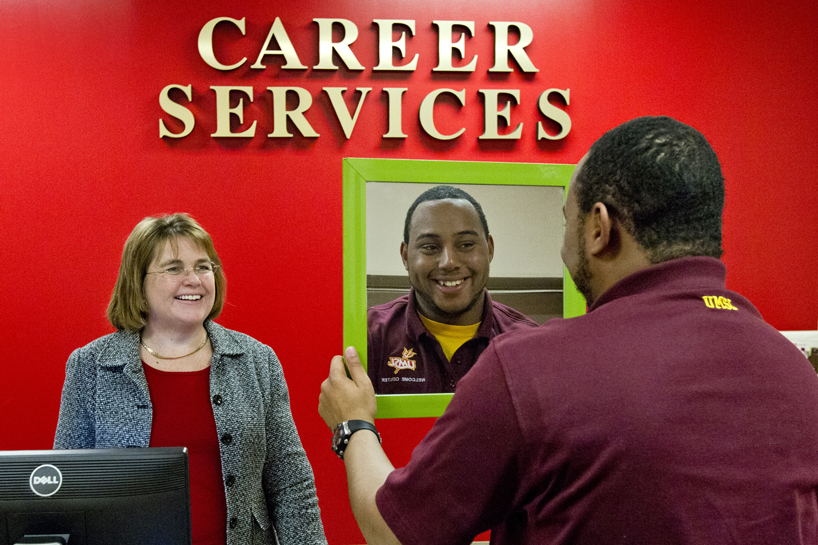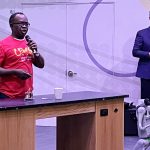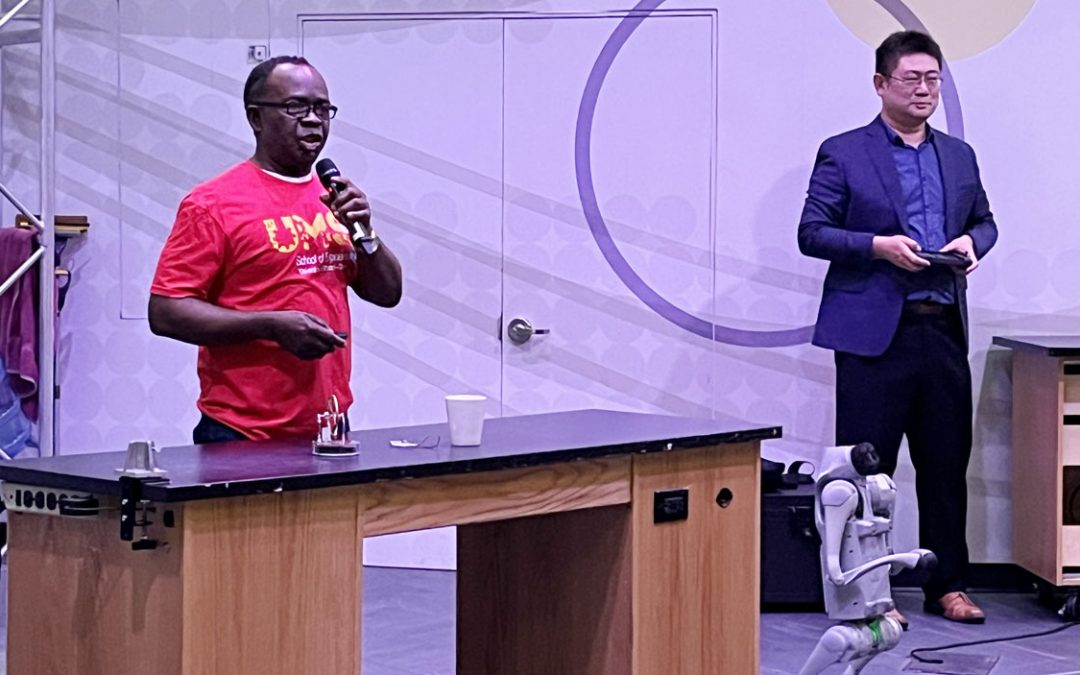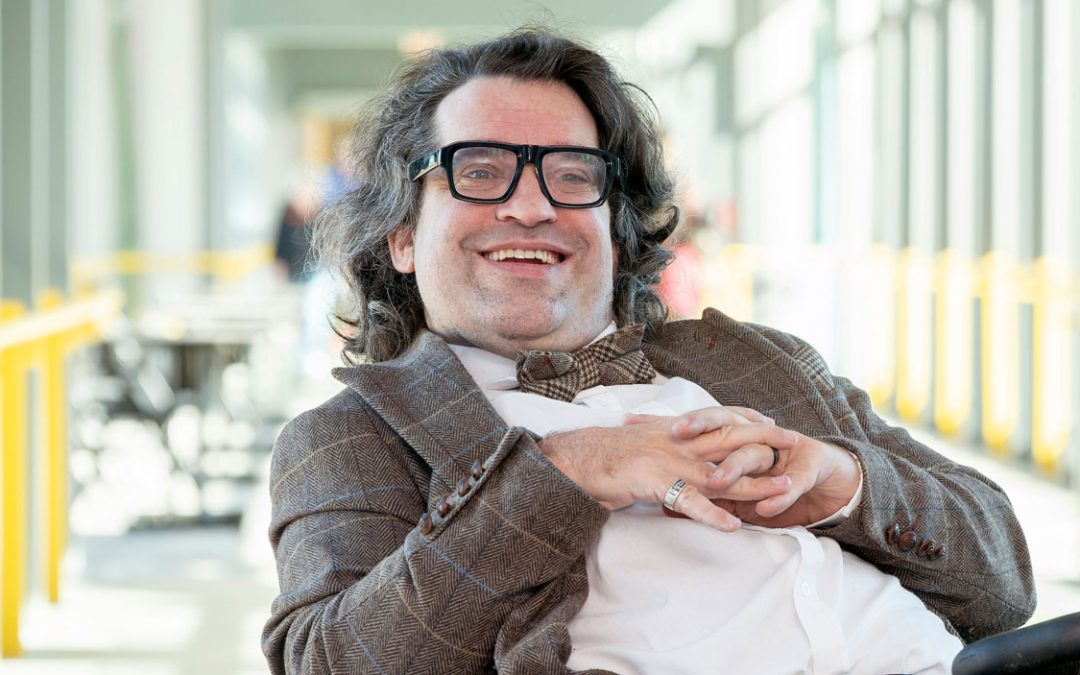
Teresa Balestreri, director of Career Services at the University of Missouri–St. Louis, talks with Christopher Williams, a graduate student in education, about the importance of self-discovery before starting on a career path. (Photo by August Jennewein)
What are your plans after graduation?
It’s a short question with a whole range of long and complex answers. For some college students, the discovery process goes smoothly, they excel in their major, follow a well-chosen career path and land a dream job at graduation. For many more, they never find the answers or the dream job.
 Teresa Balestreri, who directs Career Services at the University of Missouri–St. Louis, says the first step to finding that dream job is to look in the mirror. Today.
Teresa Balestreri, who directs Career Services at the University of Missouri–St. Louis, says the first step to finding that dream job is to look in the mirror. Today.
“The importance of career decision-making needs to be introduced early on,” Balestreri says. “Students really need to begin to understand themselves at the beginning of their college experience, not at the end. And we can help them do that, before they even take a class here.”
Prospective students can visit the Career Services website and take a self-guided career planning program called Focus 2. Customized to the majors UMSL offers, the program combines self-assessment, career and major exploration, decision-making and action planning so a student can begin understanding the process.
“Career decision-making is being ‘infused’ into the academic process,” Balestreri explains. “We are touching full-time freshmen, we have engaged the faculty in this process and we are using tools such as the Strong Interest Inventory to help students in career planning.”
According to Balestreri, research shows that and individual’s interests are the number one indicator of career success. She uses herself as an example. It’s a familiar tale.
“As an undergraduate, I had a lot of people telling me what I should major in,” she says. “I changed my major a lot only to discover it wasn’t what I was interested in. It took five years for me to earn my undergraduate degree. I was always drawn to psychology, not working with personal issues, but rather vocation-based counseling.”
Balestreri earned a master’s degree in counseling at UMSL in 1992 working part time in the Office of Admissions while she was a student. She was named director of Career Services in 2003. She eventually followed her interests, advice she continues to give today.
Career Services has hired an employer relations coordinator to take a more intentional approach in aligning employers with students, a position Balestreri says expands the role of her office.
“It’s increased our ability to bring in more employers in different ways,” she says.
Next year the office will only hold one large internship/job fair with 100 or more employers and hold smaller sessions for employers and students more frequently.
“We also are trying to bring employers into the decision-making process and connect with our students” Balestreri says. ”Employers are providing an educational component to their session so that students can hear first-hand what will bring them success.”
Balestreri says that the No. 1 hiring source for many organizations and businesses are internships. St. Louis employers, especially the larger organizations, are looking for summer interns a year away from graduation. Decisions can be made at the end of that summer for a permanent job the following May.
“I encourage students to come to our office at the end of their sophomore year to begin preparing a resume,” she says.
Balestreri says the changes in her department further strengthen UMSL’s role in work-force development in the region.
“The advantage we have at UMSL is our reputation for producing strong candidates,” Balsetreri says. “Our graduates are academically prepared, they have the work ethic employers are looking for, and we have that competitive local edge. Lots of college graduates in St. Louis want to go home when they graduate. Our graduates are already home.”














